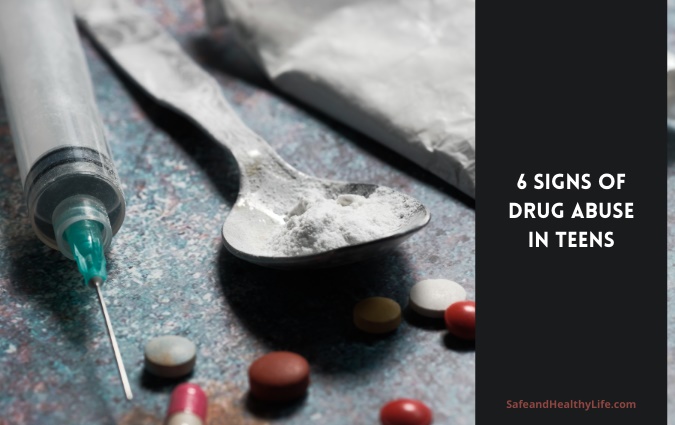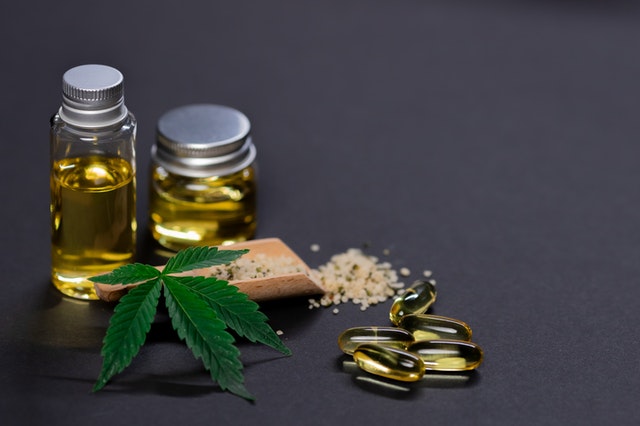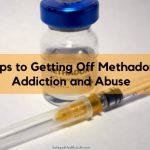
It is hard to detect early signs of drug abuse in teens as it does not show acute effects during early usage. But you can find out their drug usage where you can sense something off or irregular with your child’s routine or behavior.
As a parent, it can be alarming to learn about your teen’s substance abuse. If you suspect drug abuse, we recommend home-based drug testing kits before taking any action.
Facts about Teen Drug and Alcohol abuse
- Teens are at higher risk of drug addiction because of their socio-economic circumstances, age, genetics, and other associated factors.
- It may start as casual drug use, but it may lead to abuse and addiction if not controlled, causing severe health issues, financial problems, and unnecessary legal trouble.
- According to some trusted sources, most teens in the United States of America are addicted to Marijuana and COC.
- Recently, Vaping (nicotine or THC) rates have increased tremendously among teens in the last few years.
- Many teens who got addicted to these drugs are facing co-occurring mental health disorders.
- A teenager’s brain is highly susceptible to disorders and effects as it is still in the developing stage.
- Addiction, be it a teenager or an adult, is a kind of disease. It should not be considered as a moral failure or moral collapse. If you come across any addicted person, it is better to focus on the behavior than the person.
- Addiction is not curable. But it can be managed. No rehabilitation center can assure that the person they treated is entirely out of addiction. They make the person manage addiction through specific practices. Addiction should be managed over time like other chronic diseases like diabetes or hypertension.
- It is better to prevent it before it comes. So, it could be better to spend time with your child and learn about their expectations, desires, teach them about the rules and consequences they could face if they break the rules, etc. Keep a check on them regularly.
- Detecting drug abuse in the earlier stages might help to treat it effectively and restore lives.
Causes of Teen Drug Abuse
According to some trusted sources, nearly half of all the drug users in the US are below the age of 18. This can be shocking, but in this technological world, it is the teens who are more in a depressed state than those who are working in high-pressure jobs. It is not the only reason.
Some of the prominent causes that might be reasonable for teen drug abuse are:
- Curiosity -Some teens might find it curious to experience what the drug could bring to them.
- Pressure from peers – This is the most common cause where most teens are exposed to drugs. This might include both physical and mental compulsions that could drive the individual to smoke the drug. The individual may think of staying away from using again, but it hardly happens.
- Mood swings – Repeated setbacks in life may push a person to smoke illegal drugs. Teens, in particular, do not have the maturity to face setbacks or obstacles that could push them to smoke.
- A relief from reality – Most teens hate their reality, and to escape from that, they do drugs. They hope that this might give them relief from reality. But it is not a relief; instead, it is a trap or path towards addiction.
- Depression – As discussed earlier, this is the most common cause that might draw teens into the world of drugs.
Common Drugs that Teens Abuse

Photo Credit: Pexels
There is no difference between adults and teens in drug usage as most illegal drugs are easily accessible despite several stringent government regulations.
Some of the common drugs that the teens abuse are:
- Alcohol – Binge drinking is more prevalent among teens in recent times. Teens are more obsessed during parties and involve in binge drinking, consuming more alcohol that could lead to addiction. According to CDC, nearly 17% to 25% of high school students and teens are involved in binge drinking.
- Marijuana – The perception of marijuana usage among teens and adults are changing since the arrival of the Medical Marijuana law. Most teens think that using marijuana does not create much trouble for their bodies.
- Over-the-counter Medications and prescription Medications – OTC medicines like DXM and narcotic painkillers like Benzos and Oxycontins can give pleasurable effects. Teens are highly perceptible to drug addiction or overdose by taking these medications without prescriptions.
Abuse Statistics
- According to the reports of the CDC, nearly 1 in 5 teens abuse prescription and OTC medicines in recent years.
- According to the NIDA reports, nearly 21 percent of the teen population use high-profile illegal drugs like Cocaine and Marijuana.
- Nearly 1 in 3 parents believe that they can do nothing about their teen drug abuse. They have lost faith in bringing back their child to normal.
Signs and Symptoms of Teen Drug Abuse
Teens might not show early symptoms of drug abuse. But you can find their drug usage if their usage becomes more frequent.
Some of the signs and symptoms of drug abuse are given below.
Physical and emotional symptoms
- Mood swings that become extreme suddenly.
- Change in sleep patterns and fatigue.
- Bloodshot eyes and dilated pupils.
- Lack of appetite and unusual practice of binge eating.
- Changes in dressing pattern.
- Suicidal thoughts.
- Uncontrollable anger.
- Unexplained burns and nosebleeds.
Social symptoms
- Neglecting friends and prefer to be alone most of the time.
- Not spending some time with family members and prefer loneliness.
- Lack of interest in hobbies and other interesting activities.
- Doing secret activities and keeping things away from friends and home.
- Building defensive character.
Family and home issues
- Not obeying any house rules and being reluctant to abide by them.
- Not involved in any of the family activities or routines.
- More absence from home and staying isolated from the family members.
- Always staying in the mindset of collecting drugs and obsessed with using them.
- Lying and giving unrealistic or unbelievable explanations.
- Using breath mints or air fresheners to cover up drug usage.
- Thoughts of running away from home or suicidal thoughts.
School problems
- Lacking attendance in school.
- Failure to complete the assignments on time.
- Feeling dizzy or sleeping in the class.
- Consistent behavioral problems.
- Sudden change in grades.
- Increased tardiness.
- Lack of interest in extracurricular activities.
Financial concerns
- Involve in theft like stealing money from family or friends (unintentionally)
- Lack of saving and unexplained loss or shortage of money.
- Possessions getting missed or lost.
- Investing more money in drugs and alcohol.
- Lack of tracking or finding tangible evidence on expenses.
- More money or property (like clothes, food, and accessories) is incoming without any proper source. (If you find this, immediately respond as your child may be dealing and making money with drugs.)
Legal problems
- More involvement in criminal activities or social disturbances.
- Arrests for drug-related activities.
When does my child need help?

Photo Credit: Unsplash
Your child needs help when you can explicitly find out one or more of the symptoms as mentioned earlier. It is because medical symptoms are hard to trace in the initial stage and it can show up only when the addiction becomes worse.
First of all, you need to trust your child. If you could find some of the symptoms discussed above, you should keep in touch with your child every now and then and keep track of their activities without second-guessing them. Make sure that your child does not feel like you are tracking them.
You can get professional evaluation and opinions from trained counselors and experts before starting it. This could help you to retrieve your child from the grave of addiction.
If the abuse has become more severe or led to addiction, you need not panic. You can calculate the level of drug traces using home-based drug testing kits before taking any action. He could help you to get clarity about what needs to be done.
You can join your child in a drug rehabilitation program and help your child manage the addiction through proper treatment.
How effective are Residential treatment centers for teen drug abuse?
Most residential treatment centers are highly focused on treatment for drug addiction that they do not care about co-occurring symptoms like mental disorders.
Some teens may face co-occurring mental disorders like depression and anxiety along with drug addiction. You will need a trained professional who has complete knowledge about drug addiction and treatment in teens.
Residential treatment might be complex for the child to adopt, but they are the best source of helping the child facing drug-related issues.
Final Words
Drug addiction may be common among older adults, but it should not be in teens. Drug addiction itself is the most sensitive issue the country faces, and the US government is taking various actions to curb illegal drug usage.
With the help of the above signs and symptoms, it is time to give your hand to your child and prevent them from entering the self-made graveyard.
About The Author:
Harry Garlow is a young content writer who aspires to create awareness about drug abuse and its effects. He helps people by providing valuable and necessary information about illicit drug usage, drug testing, and its methods, detoxification, state and federal laws that are in action with respect to drug usage and drug testing, etc.
He is the editor at DrugTestPanels, one of the reputed online drug stores that offer end-to-end drug test kit solutions for employers and individuals all over the United States.




